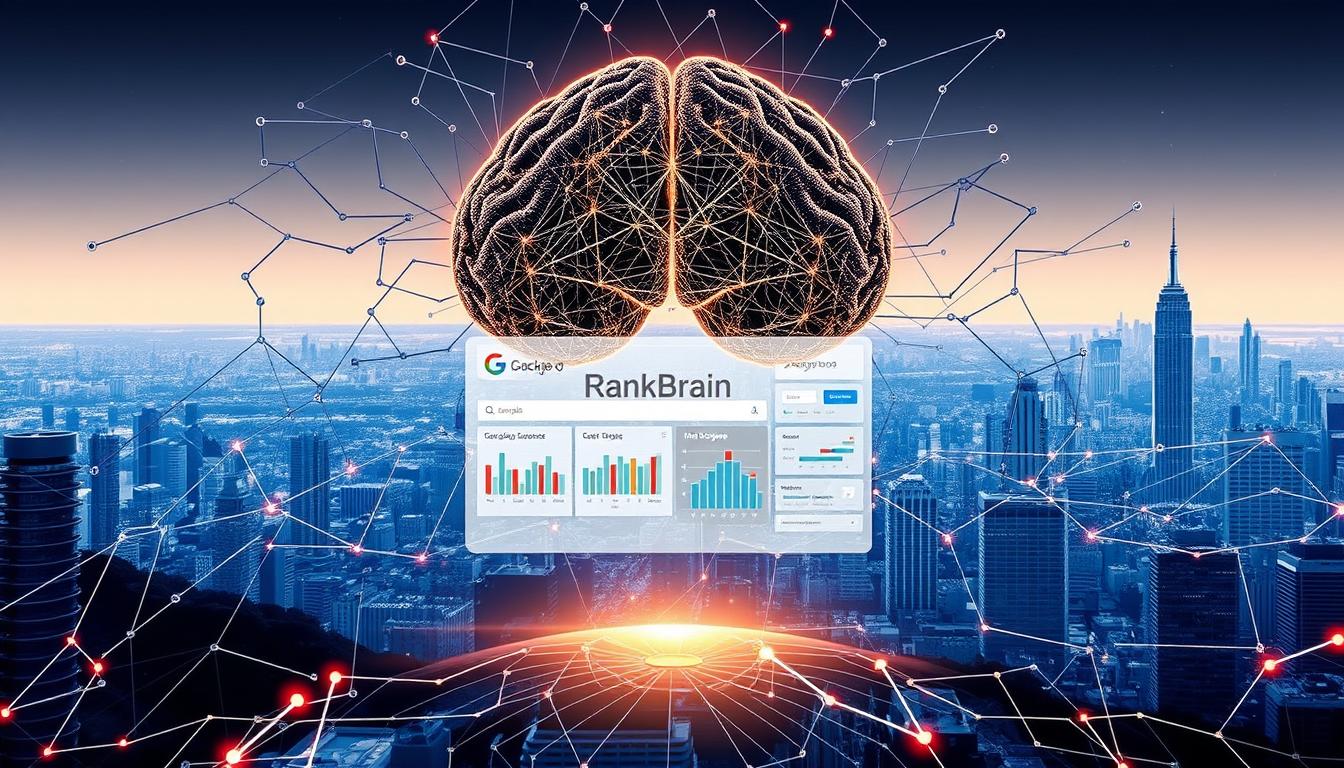
Top Local SEO Ranking Factors in 2025
Local SEO is key for businesses wanting more local traffic and leads. It boosts brand awareness too, with 46% of Google searches having local intent. It’s vital to understand local SEO ranking factors to improve online visibility and trust. Google Business Profile and local citations are essential for better local search rankings.
Knowing the main local SEO ranking factors helps businesses grow online. They need consistent NAP (Name, Address, Phone Number) citations for Map Pack ranking. Google Maps star ratings also affect local search rankings. By using broad and location-based keywords, businesses can attract more searches and rank higher locally.
Key Takeaways
- Local SEO is vital for businesses to increase localised traffic, leads, and brand awareness.
- Google Business Profile optimisation and local citations are essential for local SEO ranking factors.
- Consistent NAP (Name, Address, Phone Number) citations are vital for ranking in the Map Pack.
- The Google Maps star rating can impact a business’s ranking within local search results.
- Optimising for broad keywords and location-based keywords can improve local search rankings.
- Local SEO ranking factors are distinct from traditional organic search results, with unique factors relevant solely to local search.
Understanding the Evolution of Local SEO Ranking Factors
Local search has seen big changes, thanks to AI and machine learning. Near me mobile searches have jumped by 136% in a year. This shows how vital local search is for businesses. Google now uses over 200 ranking factors in its algorithm, making it key for businesses to keep up.
The history of local search has seen major shifts, with AI being a big player in 2024-2025. To boost local search rankings, businesses should optimise their Google Business Profile. This means picking the right categories and adding quality photos. AI helps make search results more accurate and relevant.
To get better in local search, businesses should work on getting quality backlinks and reviews. They should also make sure their online presence is consistent. By understanding and adapting to local SEO changes, businesses can get more visibility and attract more customers.
Google Business Profile Optimisation in 2025
Optimising your Google Business Profile is key for local SEO. Make sure your business’s name, address, and phone number are the same everywhere. Up to 50% of your site’s organic traffic could come from your Google Business Profile.
Choose 2-3 main categories for your business based on what works for others. Your business description should include important search terms and locations. Also, track your Google Business Profile links to see your traffic.
Optimising your Google Business Profile can boost your click-through rates and local search rankings. Adding photos can increase directions requests by 42%. This can lead to more customer engagement and sales.
- Consistency in NAP format across all platforms
- Selecting relevant categories and including main search terms in the business description
- Utilising tracking mechanisms and monitoring traffic through Google Search Console and Google Analytics
Follow these tips to improve your local search rankings and increase sales.
The Role of Local Citations and Directory Listings
Local citations and directory listings are key for local SEO. They help businesses get seen more online and reach more people. Recent data shows they’re among the top factors for local search rankings.
Businesses on the first page of local search results often have more citations, about 80 on average. But, the number can change based on the industry. For example, hotels might have 152 citations, while dentists have around 107.
Directory listings can also boost local visibility, like on Yelp, which is often at the top of Google search results for local searches.
Quality is more important than quantity when building local citations and directory listings. Businesses should aim for reputable directories that match their industry and location. It’s also key to keep citations consistent to avoid harming local SEO rankings.
By focusing on quality and consistency, businesses can climb higher in Google Maps and on Google search results.
These directories can increase a business’s online presence and reach more people. By listing in these directories and creating high-quality local citations, businesses can boost their local search rankings and attract more website visitors.
Mobile-First Indexing and Local Search Performance
Mobile-first indexing is key for local SEO. Businesses need to make their websites fast and easy to use. With over 60% of Google searches coming from mobiles, focusing on mobile is vital.
A good user experience boosts local search visibility. Mobile usability is a big part of Google’s “Mobile-first Index”.
To get better at mobile-first indexing, websites should have a responsive design. Google recommends this. Also, page speed is important. A slower site can lose users quickly on mobiles.
Some important things for mobile-first indexing include:
- Make sure the mobile site has the same content and structure as the desktop site
- Optimise images and media for mobiles
- Use Google Metrics like page speed and viewport configuration to check mobile usability
By focusing on mobile-first indexing and improving page speed and user experience, businesses can do better in local searches. It’s important to remember that mobile-first indexing is a major SEO factor now. Businesses need to keep up with how users are changing.
Customer Reviews and Reputation Management
Customer reviews are key for local search rankings. They can help businesses show up higher in local searches. Businesses with lots of positive reviews get seen more in local searches.
Engaging with reviews can boost a business’s reputation and gain customer trust. This can help improve local search rankings.
To manage reputation well, focus on getting quality customer reviews. Offer great service, ask customers to review, and reply quickly to all reviews. Replying to reviews can help with sales, but it doesn’t change Google Search rankings.
Some good ways to get reviews and manage reputation include:
- Ask customers to review via email or in-store promotions
- Reply fast to all reviews, good or bad
- Use tools to keep track and understand customer feedback
Using these methods can help businesses look better online. It can also increase trust and sales.
Local Content Strategy and Optimisation
Creating a local content strategy is key for businesses to boost their online presence. shows that 48% of Google searches are for local businesses. This makes local content vital for search engine results.
A good local content strategy starts with keyword research. It finds terms and phrases that local customers use. This helps businesses connect with their audience.
Content marketing is a big part of local strategy. It means making content that people find useful and interesting. This can be blog posts, videos, or social media updates. says 82% of people read online reviews before buying locally. So, managing reviews is also important.
- Conducting thorough keyword research to identify relevant terms and phrases
- Creating high-quality, engaging content that meets the needs of the target audience
- Incorporating review management into the content strategy
- Optimising content for local search by including location-specific keywords and phrases
By following these steps, businesses can get more online visibility. They can also reach their audience better and increase sales. points out that being consistent in Name, Address, and Phone Number (NAP) is key. This ensures a strong online presence.
Technical Local SEO Ranking Factors
Technical local SEO ranking factors are key to making a website more visible in local search results. shows that 46% of Google searches are local. So, it’s vital for businesses to work on their technical SEO. Using schema markup is a big help, as it tells search engines what your site is about.
Core web vitals are also very important. They affect how users feel about your site and how search engines rank it. A site that loads quickly and works well on mobiles is more likely to rank well in local searches. And, 61% of mobile users are more likely to contact a business if its site is mobile-friendly.
Some key technical local SEO ranking factors include:
- Schema markup implementation
- Core web vitals optimisation
- Mobile responsiveness requirements
By focusing on these technical local SEO ranking factors, businesses can boost their online presence. This can lead to more website visitors and a better chance of ranking higher in local searches.
The Impact of User Behaviour Signals
User behaviour signals are key in local SEO. They show how users interact with a website. They are a major ranking factor. Businesses should make websites that meet their audience’s needs.
This means focusing on click-through rate, bounce rate, and other user engagement metrics.
Some important metrics to look at are:
- Click-through rate (CTR): the percentage of users who click on a website after seeing it in search results
- Bounce rate: the percentage of users who leave a website without taking further action
- Dwell time: the amount of time users spend on a website before returning to search results
By understanding and improving these signals, businesses can boost their local SEO rankings. This attracts more relevant traffic to their site. Google values user interaction, so it’s vital to create engaging websites.
By focusing on user behaviour signals and optimising for key metrics, businesses can improve their local SEO and drive more traffic to their website. This can lead to more conversions and revenue. It’s a key part of any local SEO strategy.
Local Link Building Strategies
Local link building is key for local SEO and boosting business visibility. Many local businesses see great benefits from smart local links. To get these benefits, businesses can join in community activities, like sponsoring events or teaming up with local groups. This approach not only builds quality links but also improves the business’s standing in the area.
Some top methods for creating local links include:
- Joining in local events and adding them to local pages
- Setting up profiles on local directories, like the Better Business Bureau (BBB)
- Working with local charities and backing local causes
- Connecting with local bloggers and influencers
Local press relations are also vital for building links. By making friends with local journalists and media, businesses can get more coverage in local papers. This can lead to valuable backlinks. Also, making content that’s useful to the local community can draw links from local sites and blogs.
By using these strategies, businesses can boost their online presence, climb search rankings, and get more website visitors. Remember, local link building is a continuous effort that needs ongoing community engagement.
Social Media’s Influence on Local Search Rankings
Social media is key in boosting local search rankings. It helps businesses get seen online and reach their audience. Studies show that active social media accounts can help improve local search rankings. This is because social media lets businesses connect with customers, share content, and grow their brand.
To make the most of social media for local SEO, create profiles that meet your audience’s needs. Use geotagging to show up more locally. Also, link YouTube videos to Google Places listings. Make sure your NAP (name, address, phone number) is the same everywhere for better rankings. Social media can also make your business more visible on search engine results pages (SERPs), even if it doesn’t directly affect rankings.
Here are some benefits of using social media for local SEO:
- Increased online visibility and reach
- Improved brand reputation and customer engagement
- Enhanced local search rankings through geotagging and optimised metadata
- Increased website traffic and engagement metrics, which correlate highly with better search rankings
By using social media wisely, businesses can boost their local search rankings. They can also increase their online presence and reach their audience better. As social media keeps changing, it’s vital for businesses to keep up with new trends and best practices.
Voice Search Optimisation for Local Businesses
Optimising for voice search is key for local businesses. It boosts their visibility in local search results. With 27% of the world’s population using voice search on mobile devices, and 72% looking for local business info weekly, it’s vital. Voice searches are longer and more conversational than text searches. Optimising for voice search can improve a business’s reputation and visibility.
To optimise for voice search, local businesses need a strategy. This includes voice search query patterns and implementing voice search strategy. Use natural language and long-tail keywords in content. Make sure your website works well on mobiles and loads quickly. Also, get positive customer reviews and use schema markup to boost local search visibility.
Some key tips for optimising for voice search include:
- Using natural language and long-tail keywords in content
- Ensuring website is mobile-friendly and has a fast loading speed
- Encouraging positive customer reviews
- Using schema markup to enhance local search visibility
By following these tips, local businesses can boost their visibility and reputation in voice searches. This keeps them ahead in the growing voice search market.
Local SEO Tools and Analytics
Local SEO tools and analytics are key for businesses to grasp their online footprint and make smart choices. With the right tools, companies can do keyword research, check their website’s performance, and spot areas to get better. It’s known that 80% of people search locally on search engines like Google. This shows how vital it is to use local SEO tools to boost a business’s online presence.
Some top local SEO tools and analytics include:
- Google Analytics to track website traffic and behavior
- Google Search Console to monitor search engine rankings and impressions
- Local SEO audit tools to identify technical issues and areas for improvement
By using these tools, businesses can get deep insights into their online presence. They can then make smart choices to enhance their local SEO.
Also, local SEO tools help businesses with keyword research, checking competitors, and finding new growth chances. By tapping into these tools and analytics, companies can outdo rivals and boost their visibility in local search results.
Emerging Technologies Affecting Local Search
new tools like augmented reality and IoT leading the way. By 2025, over 40% of mobile searches are expected to be about locations. This shows how vital local SEO is for businesses. They must use these new technologies in their local SEO plans.
Augmented reality can make searches more fun and interactive. It lets users dive into content in a new way. IoT devices, on the other hand, give insights into what people like. This helps businesses make their marketing more effective. As these technologies grow, businesses need to keep up to stay ahead in local search rankings.
Augmented Reality Integration
Augmented reality can change how businesses talk to customers, making it more engaging. By adding AR to their local SEO, businesses can get more people involved and boost sales. With new tech coming out, it’s key for businesses to create unique, interactive content.
Internet of Things (IoT) Impact
The Internet of Things (IoT) is also big for local search, giving insights into what people want. By using IoT data, businesses can understand their audience better. This helps them make marketing that really works. As tech keeps getting better, businesses need to keep learning about new trends, like voice search, which is set to grow to 50% of all searches.
Common Local SEO Mistakes to Avoid
Businesses often make mistakes in local SEO that harm their rankings. Data shows 29% of companies don’t list their locations online, and 32% don’t show them on their websites. This can cost them a lot of customers and money. A good SEO audit can spot and fix these errors.
Optimising for local intent is key, as 46% of Google searches are local. Businesses that don’t focus on local SEO lose out to competitors. Some common mistakes include:
- Incorrect or inconsistent business listings
- Failure to respond to customer reviews
- Insufficient or low-quality website content
- Lack of visual content on business listings
Companies like Ulla Popken have seen better search views and clicks by using the right keywords in their listings. Using attributes like “women-led” and “LGBTQ+ friendly” can also help. By avoiding these mistakes and doing regular SEO audits, businesses can get more local customers.
Customer ratings are also key, as Google says they affect search results and rankings. Businesses with bad reviews might see fewer clicks, if their average rating is low. By answering reviews and keeping a high-quality website, businesses can build trust and boost their local SEO.
Conclusion: Future-Proofing Your Local SEO Strategy
As the local SEO world keeps changing, it’s key for businesses to keep their strategies up to date. Keeping up with the newest SEO trends and adjusting your plan can make sure your online presence stays strong.
Important steps for making your local SEO strategy future-proof include having a solid Google Business Profile. Also, focus on voice search and mobile-first indexing. Don’t forget to use new tech like augmented reality.
By always checking your performance with analytics tools and updating your strategy, you can set your business up for success. This way, your business will stay visible and competitive online for a long time.
To embrace the future of local SEO, you need to be quick to adapt and rely on data. Stay informed, try new things, and keep improving your strategy. This will help your local SEO efforts stay strong and your business visible and competitive in the future.
FAQs
In 2025, the top local SEO factors include optimising your Google Business Profile. It's also important to keep your NAP (name, address, phone number) info consistent. Building high-quality local citations and focusing on mobile-first indexing are also key.
The evolution of local SEO has changed how businesses approach local search. With AI and machine learning, focusing on user behaviour signals and voice search is now critical. Adapting to these changes helps keep your local search presence strong.
To optimise your Google Business Profile in 2025, ensure your NAP info is consistent. Create high-quality citations and use your profile to boost local search rankings.
Local citations and directory listings are key for local SEO. Focus on quality over quantity. Ensure your NAP info is consistent across UK business directories to build trust with search engines.
Mobile-first indexing is now critical for local search. Page speed, user experience, and mobile responsiveness are essential. Make sure your website is optimised for mobile to improve local search visibility.
Reputation management is vital for local SEO. Focus on generating positive reviews, responding to negative ones, and maintaining a strong online reputation. Use review generation, response best practices, and proactive monitoring to manage your reputation.
A successful local content strategy involves keyword research and creating high-quality, localised content. Ensure your content meets the needs of your target audience and optimises for local search.
Prioritise technical local SEO factors like schema markup, core web vitals, and mobile responsiveness. Improve these technical elements to boost your local search performance.
User behaviour signals, like click-through rate and bounce rate, are important for local search rankings. Optimise your website to enhance user engagement and provide a positive experience to improve these signals.
Effective local link building strategies include community engagement, local press relations, and strategic partnerships. Focus on building high-quality, contextual links from local sources to enhance your local search visibility.
Social media platforms can boost local search rankings through social signals. Optimise your social media profiles and content to support your local SEO efforts.
For voice search optimisation, understand common voice search query patterns. Implement a targeted strategy to ensure visibility in voice-based local searches.
Use a variety of local SEO tools and analytics, including keyword research, backlink analysis, and local search performance tracking. These tools help gain insights and optimise your local SEO strategies.
Emerging technologies like augmented reality and IoT are influencing local search. Stay informed and explore ways to integrate these technologies into your local SEO strategies.
Avoid neglecting SEO audits, failing to address technical SEO issues, and not keeping up with trends. Proactively identify and address these mistakes to maintain a strong local search presence.
Stay updated with the latest SEO trends and continuously adapt your strategies. Focus on creating a well-rounded approach that covers all key local SEO ranking factors.











